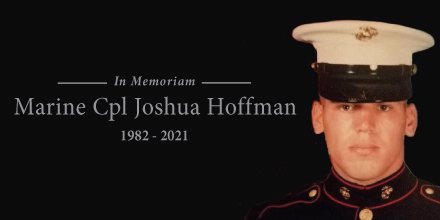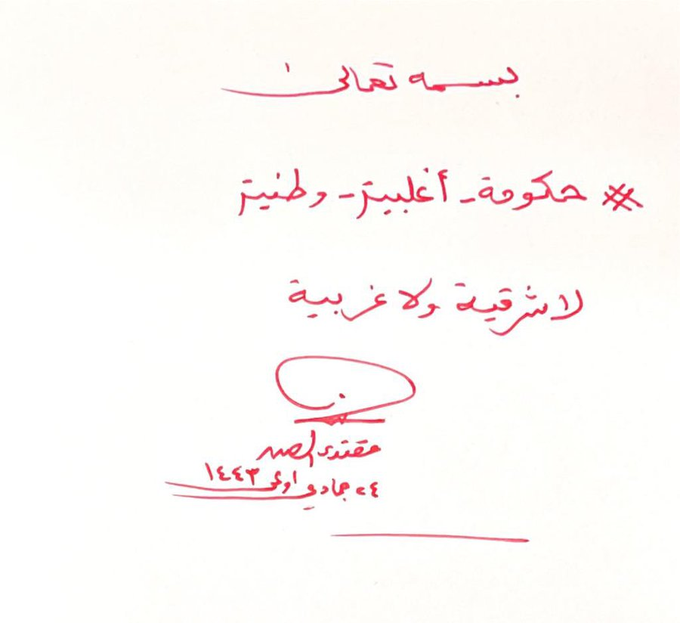An angry e-mail came in insisting that I had to do something. Don't know about you but when someone tries to tell me what I 'have' to do, I start tuning them out -- especially if they don't know me.
So what has X so upset?
He wants the world to know -- via me -- that there is no such thing as luck or hope or positive thinking or . . .
What has X so upset?
This time of year. When people will consume various things with the hope that they will make the new year better.
In case this topic is new to anyone, here's Good Housekeeping:
Even if New Year's Eve parties and grand celebrations are off the table this year, there are so many ways that let you keep your favorite New Year's traditions alive, whether it's toasting with champagne cocktails or scarfing down a hearty New Year's brunch. Setting yourself up for success in the year ahead is arguably one of the best ways to celebrate. For some people, that means making a New Year's resolution, while for others it simply calls for picking up a cute daily planner. But there's another, lesser-known tradition practiced by people around the world: eating a variety of good-luck foods on January 1.
Certain foods, like noodles, cabbage, and lentils, symbolize good fortune in the new year. After downing plenty of bubbly and sweet treats on New Year's Eve, start 2022 off right with these New Year's good-luck foods that all promise wealth, prosperity and good fortune in the coming year.
Nos I'm not going to trash anyone for the above. Sorry, X.
First of all, I'm Catholic, I pray, I believe in prayer. Not insisting upon it for anyone else. But for me, it is the right thing.
So I'm not going to attack hope, a desire for luck (especially during a pandemic), etc.
Second?
Cabbage, lentils, black beans, greens, etc?
I don't care what gets you to eat them, you need to eat them. They have fiber, they're unprocessed foods, they're good for you.
This is from a USA Today article that the Chicago Sun-Times posted which lists blackeyed peas, grapes, cornbread, etc as items people eat on New Year's Day for good luck.
We do blackeyed peas. I was told , by my mother, when I was little (seven, I think) that it would bring good luck. I really believed it. Now I'm older and my mother doesn't believe in luck and I get that she used that as a motivator to get us to eat more foods that were good for us. : It worked.
In our home, we've done it because it's tradition. And, honestly, I probably do feel a sense of hope at the start of each year.
But, again, whatever the reason, if it gets someone to eat more foods that are good for us, I really don't care what the reasoning was.
This is C.I.'s "Iraq snapshot" for Thursday:
A West Michigan Marine who was paralyzed in Iraq died Monday at the age of 39 due to complications from his injury.
“He was an inspiration to all of us,” said Bill White, friend of Marine Cpl. Joshua Hoffman.
The Hastings resident was paralyzed by a sniper’s bullet while fighting in Iraq in 2007.
“Shots rang out and they all hit the ground and so did Josh,” White said. “But Josh got shot through the back of his neck.”
Hoffman grew up in the Wayland area and joined the Marine Reserves in 2002, hoping to earn money for college. He planned to be a pilot.
He was part of the Grand Rapids-based Alpha Company, 1st Battalion, 24th Marine Regiment. He was sent to Iraq’s Anbar province in October 2006, where he was attached to the battalion’s Weapons Company in Fallujah.
Cpl. Hoffman was hit in the early morning of Jan. 6, 2007, as he pursued an insurgent. The bullet entered his neck and exited his shoulder blade, shattering his upper spine.
It’s 6 p.m. and the pink-tinged skies turn black above Agolan, a village on the outskirts of Erbil in the Kurdistan region of northern Iraq. Thick plumes of smoke have begun to billow out of dozens of flaring towers, part of an oil refinery owned by an Iraqi energy company called the KAR Group. The towers are just about 150 feet from where 60-year-old Kamila Rashid stands on the front porch of her house. She looks squarely at the oil plant, which sits on what she says used to be her family’s land.
Rashid was born here, like her parents before her and her children after her. She says when KAR moved into the area, residents traded their land for KAR’s promise of jobs and reliable, less expensive electricity for the village. The land was handed over, Rashid says, but she maintains that KAR never provided the promised electricity or long-term jobs.
The towers, also called flare stacks, are used by oil refineries across the globe to burn the byproducts of oil extraction. Such flaring releases a menagerie of hazardous pollutants into the air, including soot, also known as black carbon. “The smoke coats our skin and homes with black soot,” says Rashid. Many villagers keep their windows shut and try to remain indoors whenever possible.
Iraq’s sky now rains dust and pollutants. The land between the Tigris and the Euphrates no longer gets enough rain to save the country from droughts, which have devastated local communities and agricultural supply chains, spurring a tide of migration.
The situation has deteriorated rapidly over the past two decades, with Turkey and Iran restricting the flow of water via dams and other infrastructure. Water has effectively been transformed into a political tool, while sand and dust storms are becoming more frequent across Iraq; it has been estimated that the country could experience 300 such storms a year by 2023.
Today, as Iraq celebrates the centenary of its founding as a modern state, its ecosystem is on the verge of collapse. As water flows in rivers decline dramatically, Iraq is expected to become one of the world’s most water-stressed countries by 2040, with a forecasted rating of 4.6 out of 5, indicating extremely high stress. At the same time, Iraq is contributing to global warming, with the International Energy Agency reporting that the country accounts for around eight percent of world methane emissions.
Iraq’s environment ministry has acknowledged the ongoing climate crisis, which threatens to make Iraq unliveable over the next two decades due to excessive heat, drought, scarcity of water reserves, desertification and loss of biodiversity - all of which are wreaking havoc on food security chains.
Oh well, the really corrupt already have homes outside of Iraq, so they'll just leave the country when things get too bad. It's not like they ever cared about the Iraqi people, after all. Tehir actions while in power made that perfectly clear. If they're not going to work to improve the present lives of the Iraqi people, why should the corrupt worry about the future of the Iraqi people?
WHich brings us to the zaftig Moqtada al-Sadr, the Shi'ite cleric who never a mumu or caftan he didn't decide to buy on eof in each color. Mina Aldroubi (THE NATIONAL) reports:
Iraqi populist cleric Moqtada Al Sadr said on Wednesday his country will form a national government free of external influences after the ratification of election results that confirmed gains for the Shiite leader.
Mr Al Sadr's coalition secured 73 of the Parliament's 329 seats in the national elections, gaining more than any other party and up from 54 in 2018 polls.
“In the name of God ... a government of national unity, neither eastern nor western,” Mr Al Sadr said on Twitter after meeting with leaders of the Iraqi Co-ordination Framework, the umbrella group of Shiite parties contesting the election’s results.
Amnesty
The human rights organization International Amnesty (AI) called a “parody of justice” the decision of the High Court of London to authorize the extradition to the US of Assange. “It is a parody of justice … The court decided to accept the incorrect assurances of the United States that Assange would not be subjected to solitary confinement in a prison with harsh prison regime,” declared AI director for Europe, Nils Muiznieks.
The eventual extradition of Julian Assange to the United States jeopardizes the principles of media freedom, said a spokesman for the International Federation of Journalists. Assange’s extradition to the United States would endanger not only his life, but also the fundamental principles of freedom of the press. The association will support any effort by Assange’s legal team to challenge this court ruling, “the spokesperson said.
Two years later, Washington Post reporter David Finkel published The Good Soldiers, a book based on his time embedded in the 2-16 battalion.
Finkel was with the soldiers in the al-Amin al-Thaniyah neighbourhood when they heard the Apache helicopters in action. He defended the U.S. military, writing that “the Apache crew had followed the rules of engagement” and that “everyone had acted appropriately.” The soldiers, Finkel wrote, were “good soldiers, and the time had come for dinner.”
In his recounting, Finkel made it clear that he had watched a video of the incident, even as the U.S. government denied its existence to Reuters and to human rights organizations.
On Jan. 5, 2010, Chelsea Manning, a U.S. soldier in Iraq, downloaded a tranche of documents and videos pertaining to the war onto compact discs and took them back with her to the United States.
On Feb. 21, 2010, Manning passed on the material related to Iraq to the WikiLeaks organization, which had been set up in 2006 by a group of engaged people led by an Australian national by the name of Julian Assange.
WikiLeaks and Assange went through the footage and published the full video from the Apache helicopters on their website under the title “Collateral Murder” on April 5, 2010.
In 2010, McCord told Wired’s Kim Zetter what he had witnessed:
“I have never seen anybody being shot by a 30-millimetre round before. It didn’t seem real, in the sense that it didn’t look like human beings. They were destroyed.”
In the van, McCord and the other soldiers found Sajad Mutashar (age 10) and Doaha Mutashar (age 5) badly injured; their father, Saleh was dead on the ground.
In the video, the pilot saw that there were children in the van; “Well,” he said callously, “it’s their fault for bringing kids into a battle.” When WikiLeaks released the video, then 12-year-old Sajad Mutashar said, “I want to get our rights from the Americans who harmed us.”
His mother, Ahlam Abdelhussein Tuman, said, “I would like the American people and the whole world to understand what happened here in Iraq. We lost our country and our lives were destroyed.” They were met with silence. Sajad, who recovered partly from his injuries, was killed by a car bomb in Baghdad in March of 2021.
Robert Gibbs, press secretary for former U.S. President Barack Obama, said in April 2010 that the events depicted in the video were “extremely tragic.”
But the cat was out of the bag. This video showed the world the actual character of the U.S. war on Iraq, which United Nations Secretary-General Kofi Annan called illegal.



